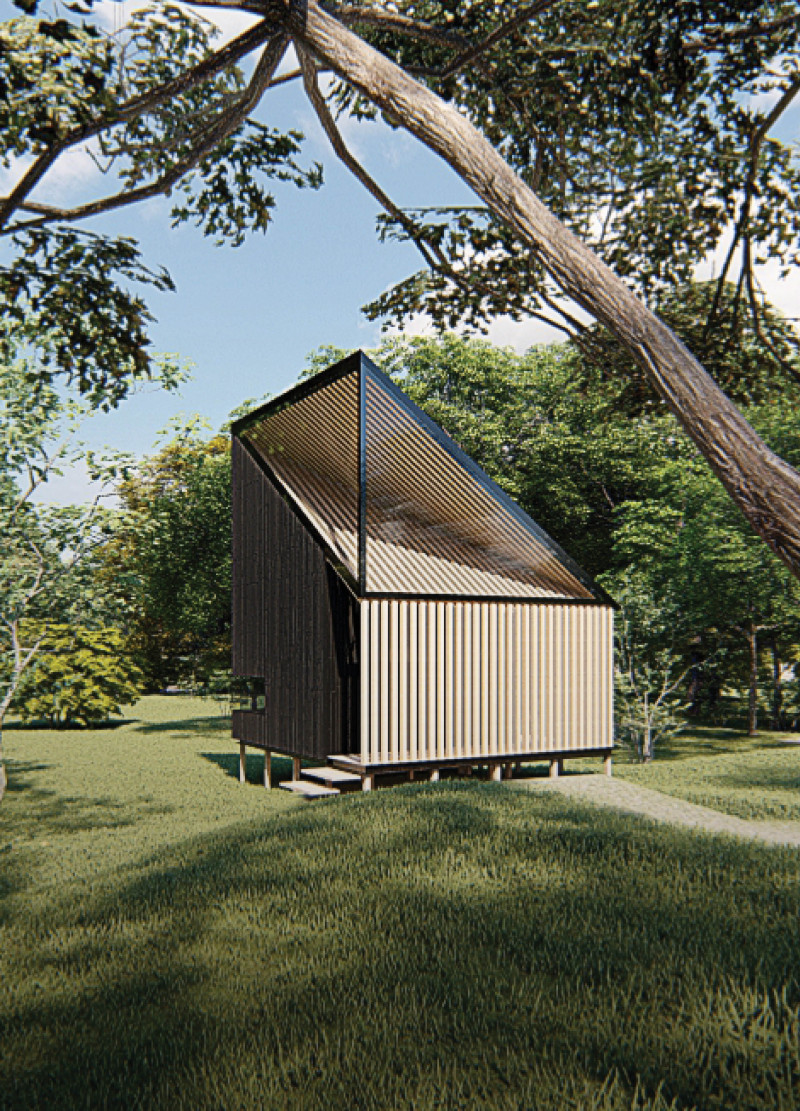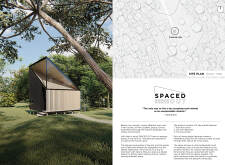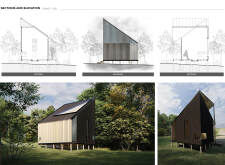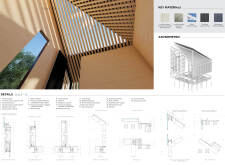5 key facts about this project
SPACED OUT is a proposed cabin design located in the natural landscape of New Zealand. The project aims to create a space that encourages personal reflection and connects visitors to their environment. The design emphasizes the use of light and shadow to enhance the experience of being present in the moment.
Spatial Features
The cabin includes three main elements: the time tunnel, self-reflection, and connection. The time tunnel acts as an entrance, inviting visitors into a unique play of sunlight and shadow. This aspect highlights the value of each moment, preparing occupants for an attentive and mindful experience as they enter the cabin.
Self-Reflection Space
At the heart of the cabin is the self-reflection area, which features a reflective glass mirror. This mirror encourages visitors to engage with their thoughts and feelings. The design here promotes a calming environment, allowing individuals to explore their inner thoughts and emotions without distraction.
Connection to Nature
The connection space allows occupants to appreciate the surrounding landscape through strategically placed windows. This design choice reduces distractions while enhancing the experience of the outdoors. Natural light floods the interior, creating a warm and inviting atmosphere. Modular furniture provides flexibility, accommodating various activities and meditation practices for individuals.
Environmental Considerations
Attention to the environment is evident in several design choices. The cabin is raised to prevent potential flooding, indicating a thoughtful approach to site conditions. A smoke-free Irori Japanese sunken hearth serves as a heating source, ensuring good air quality while adding a layer of cultural significance. Wooden posts and rafters create slits in the roof, allowing filtered light to illuminate the space, contributing to a tranquil ambiance throughout the cabin.
SPACED OUT exemplifies a design that respects its natural surroundings while offering a place for self-exploration and contemplation. The combination of practical features and thoughtful design helps create a space where individuals can connect with both themselves and nature.





















































